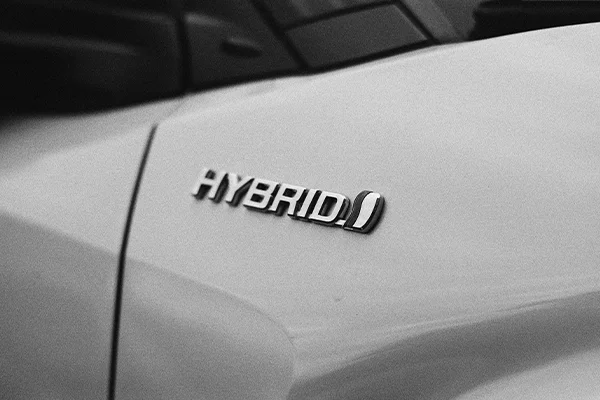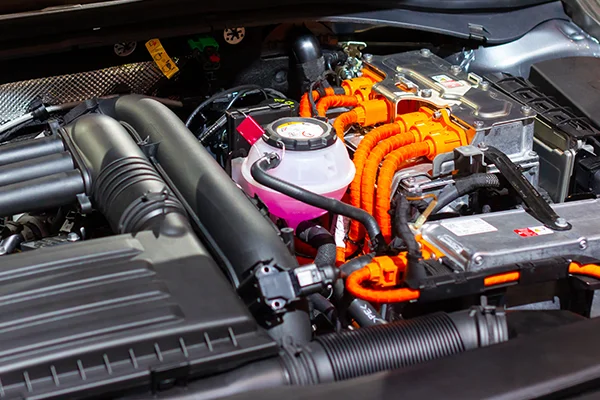Common Hybrid Vehicle Issues
Hybrid vehicles offer impressive fuel efficiency, lower emissions, and a smoother driving experience. They combine a gasoline engine with one or more electric motors, often allowing the vehicle to switch between power sources or use both at once. While hybrids are generally reliable, they also have unique components that can present specific problems over time.
Knowing the most common issues that affect hybrid vehicles can help drivers stay on top of maintenance, avoid breakdowns, and protect their investment. Hybrids can be a great way to save cash at the pump, but failing to keep up with regular maintenance can end up costing you down the line in expensive repairs and replacements.

How Hybrid Vehicles Work
Before diving into the common issues, it helps to understand what makes a hybrid different from a traditional vehicle. A hybrid uses both an internal combustion engine and an electric drive system. A battery pack stores energy, which powers the electric motor. The vehicle’s internal computer decides when to use gas, electric power, or a combination of both, depending on driving conditions.
Because of this dual system, hybrids have additional parts like electric motors, inverters, and high-voltage batteries. These components are often the source of the most common hybrid-related issues.

High-Voltage Battery Failure
One of the most talked-about concerns with hybrid vehicles is the battery pack. These high-voltage batteries are built to last, but like any component, they can wear out over time. In most hybrids, the battery is designed to last at least 100,000 miles, but some may begin to degrade sooner depending on usage, climate, and maintenance.
As hybrid batteries degrade, they gradually lose their capacity to hold charge, which may lead to quick energy depletions and frequent charging.
Replacing a hybrid battery can be expensive, but some models allow for individual cell replacement or reconditioning, which can lower costs.
Cooling System Problems
Hybrid systems generate heat just like traditional engines. Some hybrids have separate cooling systems for the electric components, including the battery and inverter. If these systems fail or become clogged with debris, it can lead to overheating and expensive damage.
The cooling fan for the battery pack, for example, can get blocked with dust or hair, especially in cars with vent intakes inside the cabin. Regular inspection and cleaning can help prevent this problem.
Inverter Failure
The inverter is responsible for converting the battery’s DC power into AC power for the electric motor. If the inverter fails, the electric system cannot function, and the car may shut down or go into a reduced-power mode.
Inverter replacement can be costly, so catching problems early is important. Some automakers have issued recalls or extended warranties for inverter issues on specific models.
Brake System Wear
Hybrid vehicles often use regenerative braking to capture energy and recharge the battery. While this system reduces wear on traditional brake pads, as it takes the strain of braking off of the physical pads and rotors, it can also cause uneven wear or unusual brake feel if not functioning correctly.
Regular brake inspections are still necessary, even if pads last longer than on a conventional car.
Software or Sensor Malfunctions
Hybrids depend heavily on an array of sensors and software to manage the interaction between electric and gasoline power. If a sensor fails or the software develops a fault, it can lead to drivability issues or trigger warning lights.
Transmission Concerns
Many hybrid vehicles use a type of transmission called an eCVT (electronic continuously variable transmission). While these are generally reliable, they can behave differently than traditional transmissions and may experience problems with shuddering, slipping, or strange noises over time.
Transmission fluid maintenance is especially important in hybrids. Some models with CVTs require special fluid, so it’s best to follow the manufacturer’s recommendations closely to avoid any unwanted wear and tear on one of your most important systems.
How to Prevent Hybrid Problems
Just like with any vehicle, proper maintenance is key to avoiding major issues. For hybrid owners, that includes:
- Keeping the cooling systems clean and functional
- Checking the battery fan and filters
- Following service intervals for fluids and filters
- Paying attention to warning lights and unusual noises
- Having the vehicle inspected by a hybrid-trained technician
Hybrid Service & Repair in Austin, TX
As hybrid systems are generally more complex than standard gas engines, it’s important to take your vehicle to a shop that understands these unique platforms inside and out. Not all general repair shops are equipped to diagnose or repair hybrid components, especially when dealing with high-voltage systems.
At Edgestone Automotive in Austin, our technicians are trained in hybrid diagnostics and repairs. Whether you’re experiencing battery trouble, cooling issues, or just need routine maintenance, we’ve got the experience and equipment to keep your hybrid running strong. Give us a call or schedule online today to secure an appointment with our experienced hybrid technicians!
